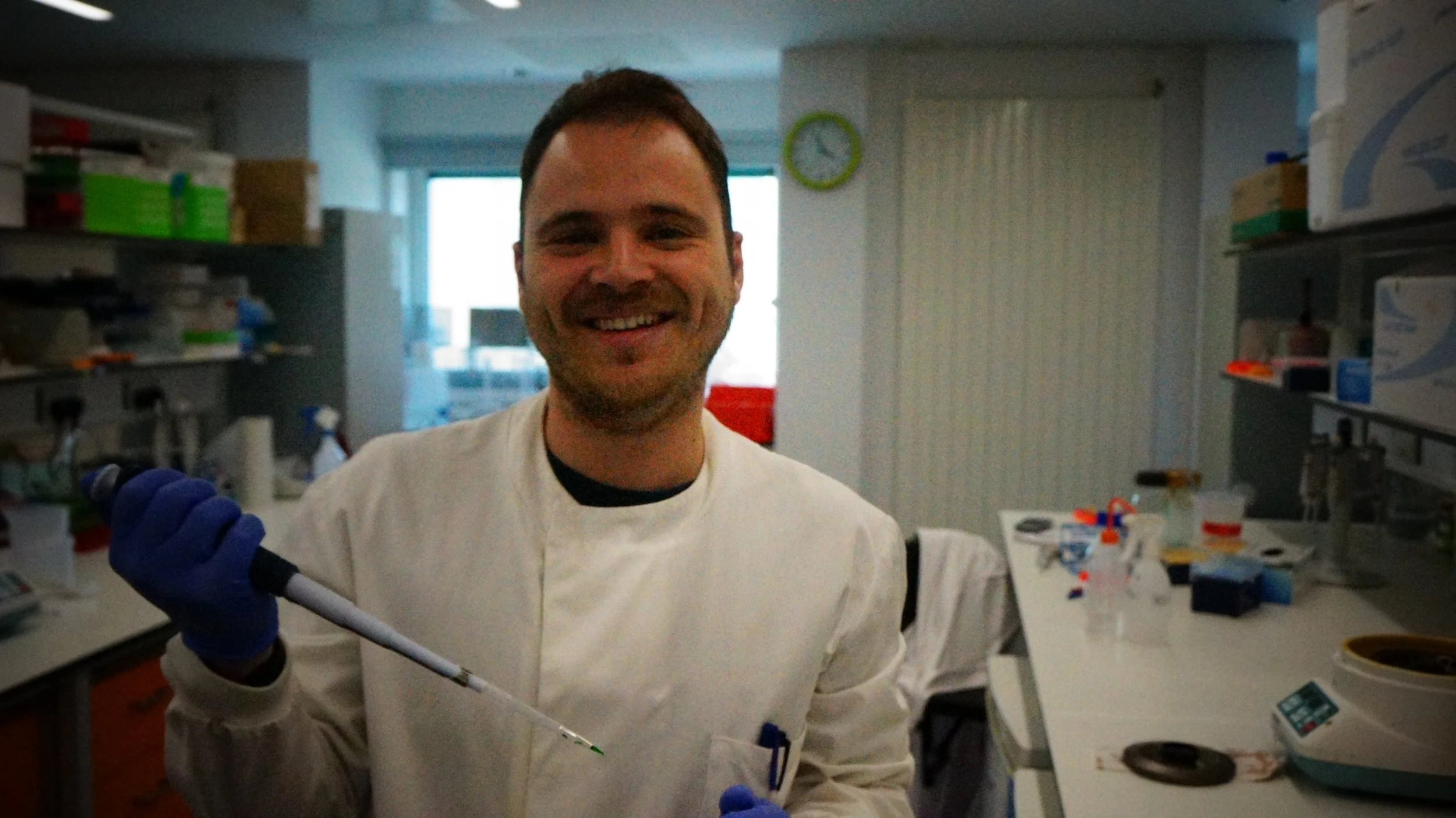Alex's PhD is allowing him to transfer knowledge on cell line development to an industry setting
Alex is working with Fujifilm Diosynth Biotechnologies on his PhD project to engineer a lactate sensing and controlling system in CHO cells. In this case study, Alex reveals his passion for working at the intersection of academia and industry to drive progress in this area.
Why did you decide to undertake this project?
First of all, I liked how this project sits in the interface between academia and industry. This allows me to use the knowledge developed in academia to fill in gaps and expand the horizons of cell line development for improved biomanufacturing in CHO. Engineering biology allows for tailored solutions that can be readily tested in industrial settings, with the aim to enhance recombinant protein production. And that was the second reason for to undertake this project: being able to improve people's life by increasing antibody productivity.
What are your ambitions for the future?
I want to continue building my knowledge on bioprocessing and to construct new systems to improve protein production. For that, I want to be part of an interdisciplinary team in the interface between academia and industry that can harness the power of both to broaden the perspectives of cell line development.
What excites you about your research?
The innovation and creative freedom that academic research allows is what excited me the most. Being able to detect a problem and then creatively strategize to tackle it and then develop the systems for it in the lab is what motivates me day to day. Doing that in the context of cell line development adds the extra motivation that the solution we are developing might improve people's health.
Where/what do you think the next innovation in IB will be?
I think it would be a bit too obvious to say AI and DNNs. I think that the innovation is in the works, a bit behind the scenes, and it involves being able to interpret and use the "tsunami" of data that comes out of cell line development pipelines. Creating canvases of how previous cell lines have behaved using hybrid models could really fast-forward clinical trials, especially in the earlier stages of discovery.
What is an interesting fact about you / what do you enjoy doing away from your studies?
I am an avid learner, both inside and outside my studies! Therefore, I like doing things that challenge me to learn new things. Cooking new recipes is a personal favourite, but I also enjoy reading to venture into the unknown but also to understand better the way the world works. In order to disconnect I also like to play sports, especially outside whenever the Scottish weather allows!

